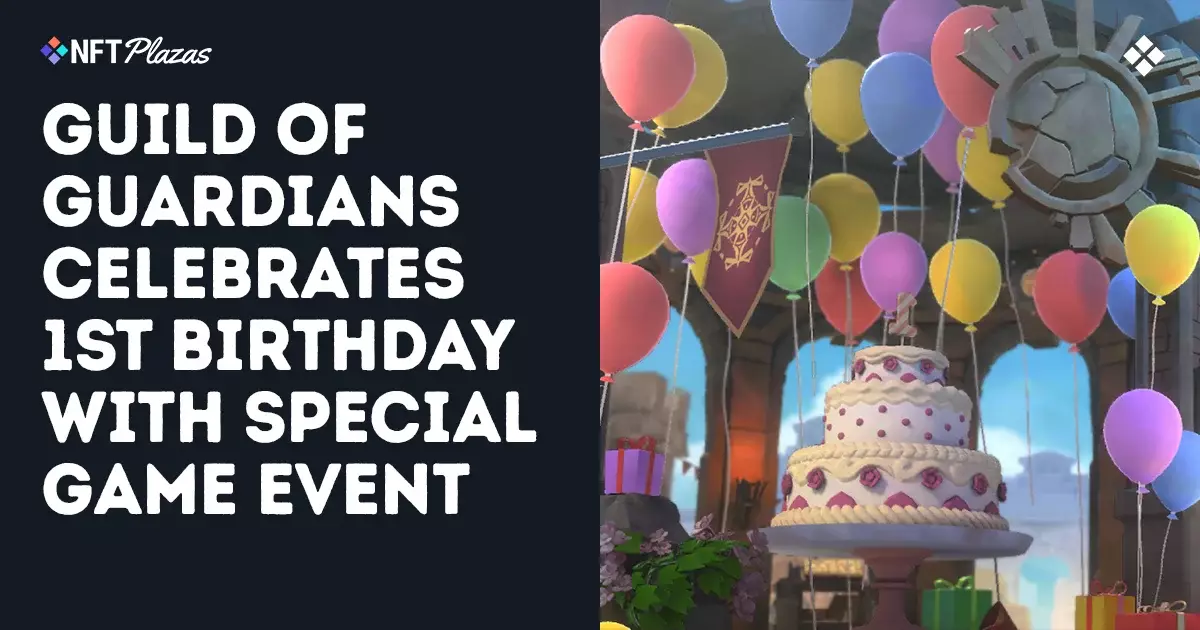As we navigate the tumultuous waters of the NFT gaming landscape, the one-year anniversary of the popular RPG, Guild of Guardians, stands out as a beacon of innovation and excitement. However, while celebrations are in order, it is crucial to scrutinize the implications of such milestones. The arrival of Guild of Guardians has not only offered gamers novel experiences but has also raised vital questions regarding sustainability and the future of NFT gaming itself. As developers like Stepico Games recognize the need for constant engagement through special events and rewards, are we to overlook the darker aspects of this fast-paced digital frontier? The answer, I believe, lies in acknowledging both the achievements and the implications that come with them.
NFT Collectibles: A Double-Edged Sword
NFT assets, a pivotal element of Guild of Guardians, introduce a revolutionary paradigm of ownership to players. This innovation frees players from the traditional confines of game items and allows for genuine investment in their gaming experiences. However, it comes with severe drawbacks. The volatility of the NFT market can render an invaluable treasure essentially worthless overnight. While trading Guardians, avatars, and other virtual treasures may seem enticing, it also invites speculation that could ultimately alienate casual gamers who lack the resources or knowledge to navigate this complex terrain. The promise of real-world value through NFT collectibles seems inviting, but it often leads to disillusionment as players grapple with the reality of fluctuating values.
The Consequence of Commercialization
In marking its first anniversary, the developers have ingeniously packaged events like Rise of the Founders to create a sense of urgency. Players must complete specific goals to unlock exclusive rewards, including rare skins and legendary characters. While this strategy may drive participation in the short term, it begs the question: is the thrill of competition undermined by commercialization? When gameplay is gamified to such an extreme, players often find themselves more concerned with unlocking virtual rewards than genuinely enjoying the experience itself. This commercialization risks transforming what could be a rich, community-driven environment into a mere marketplace dominated by the wealthiest players.
Recognition vs. Reward
Although special events like the Anniversary Event Pass aim to incentivize player engagement, they often come at a cost. Offering a premium tier priced at nearly $30 can feel exclusionary to those who already struggle with the high-barrier entry point of NFT gaming. Not only does this create disparities among players, but it transforms what should be a celebratory event into a mercantile endeavor. While it’s admirable that early supporters receive complimentary rewards, it is vital to address whether meaningful, inclusive gameplay is genuinely feasible under such a profit-first framework.
Community Engagement: The Missing Link
Perhaps the most unfortunate aspect of the NFT gaming industry’s rapid rise is the erosion of community connection. Guild of Guardians, while showcasing the potential for dynamic gameplay and NFT integration, falls short when it comes to nurturing an engaged community. Seasonal challenges may entice players back, but authentic interaction often becomes secondary to competition and commercialization. If developers want to foster loyalty and genuine enthusiasm among their player base, they must prioritize community-focused initiatives over transactional relationships.
The Economic Impact: Are We Paying for Fun?
As players immerse themselves in the world of Guild of Guardians, they must also reckon with the hidden costs associated with their enjoyment. Beyond initial investments in NFTs, ongoing expenditures for premium features can accumulate quickly, leading one to question whether the cost of fun has spiraled out of control. The economic landscape within Guild of Guardians thus reflects broader concerns regarding accessibility in NFT gaming as a whole. This trend could ultimately deter new players who might otherwise enjoy the experience, limiting the potential for growth and inclusion in what should be an engaging and diverse digital arena.
The Road Ahead: Striking a Balance
As the NFT gaming industry continues to evolve, with titles like Guild of Guardians leading the charge, a delicate balance must be struck between innovation and sustainability. While celebrating milestones is essential, it is equally critical to scrutinize the factors at play that could compromise the integrity of gaming experiences. By fostering a genuine community spirit, addressing economic disparities, and emphasizing meaningful gameplay over pure profit, developers can work towards an NFT gaming ecosystem that enriches rather than exploits. It is within this dual lens of celebration and accountability that the future of NFT gaming may ultimately flourish.















